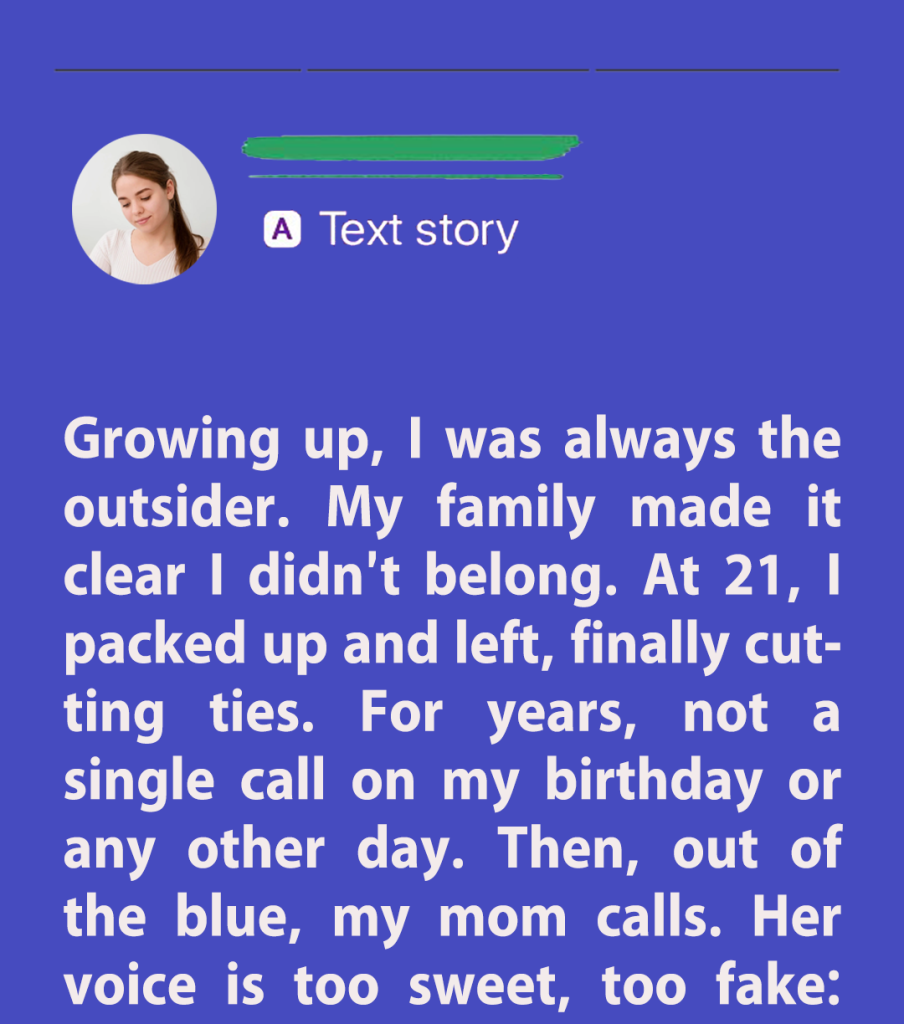Emilie refused to put her career second for her sister’s newborns.

I have always been the black sheep in my family. My sister was the golden child, and I was left out. Growing up, I wasn’t invited to family activities, my parents always took her side, and I was made to feel invisible. At 21, I packed up and moved out. Since then, I’ve been living on my own, working as a freelance graphic designer, and slowly building a life. It’s not perfect, but I’ve found peace and self-respect.
Let me rewind. Growing up, my family constantly made me feel like I didn’t matter. My sister told me to leave when I was 16 because “I took up too much space.” I wasn’t included in family fun, and when I left at 21, they didn’t even care. But now, they want me to drop everything for them? Insulting.

So, I said no. I told them I had responsibilities and couldn’t drop everything. They quickly turned on me. My mom called me heartless, and my sister called me selfish. They guilt-tripped me with “You don’t care about family” and “This is what sisters are for.” That’s when I realized, they didn’t want a sister; they wanted a free nanny.
I agreed to meet them, and when I got there, my sister barely said hello before launching into her complaints. I listened, then pulled out an envelope with a letter I wrote the night before: “I’m not here to play the martyr anymore. I was invisible to you growing up, and now you remember me only when you need a servant. I choose peace, not guilt.” I left after that, feeling like I finally closed that chapter.
A week later, I heard through a family friend that my parents told people I offered to help, then bailed last minute. They painted me as cold and ungrateful. They never really wanted me back. They just wanted me to fix their mess.
So I blocked everyone. I’m done shrinking for people who only want me when it’s convenient.
Thanks for listening,
Emilie
Healing from Past Neglect Starts with Self-Awareness.
Your decision to stand up for yourself is incredibly empowering, but it’s important to remember that your past emotional neglect may still influence how you respond to others’ demands. Growing up feeling invisible can make it harder to recognize and express your emotions, especially when guilt or obligation is involved. It’s crucial to continue prioritizing your well-being by acknowledging your feelings, even if they’re uncomfortable. Therapy could help you unpack those emotional patterns, so you’re better equipped to set healthy boundaries and avoid falling back into old habits of people-pleasing. Your peace and self-respect are worth protecting.
Slow Down and Process Your Emotions.

Heal from Past Trauma to Break Unhealthy Patterns.

Emilie, you grew up in a family where neglect and favoritism were used abusively. It’s important to work through that trauma so it doesn’t dictate your responses today. Recognizing how your past affects how you handle conflict can help you break free from unhealthy patterns. It’s crucial to give yourself permission to express your feelings without fear of escalation or withdrawal. Therapy or self-reflection can assist in healing those emotional wounds, allowing you to respond with maturity and respect, rather than letting old habits guide your behavior. You deserve to create healthier, more fulfilling relationships
Healing is a journey, and taking control of your emotional responses is a powerful step toward building healthier relationships. As you continue to work through past wounds and prioritize your peace, you may also find it helpful to explore different perspectives on family dynamics. For example, understanding the complexities of parental relationships can sometimes offer surprising insights. If you’re curious, check out this article on why having a favorite child might not be as negative as it seems. Your growth is a process, and every step forward is worth celebrating.




